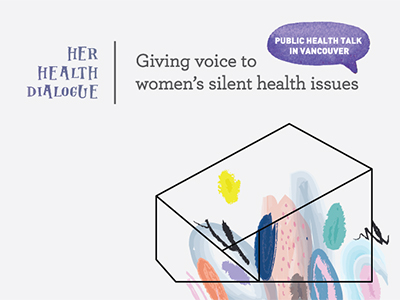
Most common sexually transmitted disease is the most misunderstood.
Human papillomavirus (HPV) is a highly contagious sexually transmitted infection that can cause cancer. HPV affects 80 per cent of sexually active people who have not been vaccinated. Considering how common HPV is, public understanding is lacking. Vancouver Coastal Health Research Institute scientist and gynecologic oncologist Dr. Marette Lee explains that misperceptions and stigmas still surround HPV. “There is a big hole in awareness and a lot of misinformation out there. We need to normalize HPV and talk about it openly so we can prevent serious illnesses for both men and women.”

Ten years ago in BC, girls in Grade 6 were offered the vaccine for free. Last year, boys in Grade 6 were added to the program. While expansion of the vaccination program is a great step, Lee is concerned about people who aren’t vaccinated. Many consider HPV just another sexually transmitted infection (STI) that can be prevented with safe sexual practice, like wearing a condom and abstaining from intercourse. “HPV is highly contagious. Wearing a condom often does not provide enough protection. You can become infected even if you don’t have sexual intercourse.”
"Anyone who has any kind of sexual activity with another person involving oral, genital or anal contact can get HPV.”
There is no cure or treatment for HPV infections. In most cases, HPV goes undetected because the body’s immune system gets rid of it before it can go on to create symptoms such as genital warts.
The bigger issue is the more serious diseases HPV can cause. “We are less concerned with the HPV infection itself; we don’t have a treatment for it. What we care more about are the pre-cancers and cancers caused by an HPV infection that persists.”
Lee says many people mistakenly think HPV is only linked to cancer of the cervix and only affects women. In fact, HPV also causes cancers of the head and neck, mouth, anus, penis (all of which affect men) as well as women’s cancers of the vagina and vulva. Incidences of many of these cancers are on the rise.

Pap smears can screen for pre-cancerous lesions of the cervix, which can then be removed to prevent cancer. But there are no standardized screening programs for the other cancers that HPV causes. That’s why Lee urges people of all ages to consider vaccination. “It’s kind of like wearing a seatbelt. You don’t know if you’re going to need it but it could prevent something serious from happening. The vaccine is very safe and most extended health plans will cover it.” Even if a person has already had an HPV infection, the vaccine will reduce the chance of recurrence.
Silent burden that stigmatizes women
“Women feel more judged because most people don’t understand how much HPV affects men too. I have many patients who blame themselves. They feel shame and guilt as well as fear and anxiety. They feel dirty.”
Lee will be discussing stigma and misconceptions about HPV at Her Health Dialogue: Giving Voice to Women's Silent Health Issues, a Vancouver Coastal Health Research Institute event happening on June 25. The public health talk will provide information about women’s sexual and reproductive health issues and offer the public an opportunity to meet with experts in the field.

Lee says the more people know about HPV, the more they will be able to take control of their health. “There are so many misconceptions about transmission and what cancers people can get. Many women falsely believe they won’t get anal cancer without having anal sex, but the truth is you can get it from HPV—without having anal sex—and it is almost three times as common in women as in men." Lee recommends people seeking more information about HPV to visit hpvinfo.ca.


